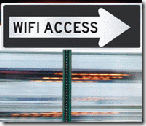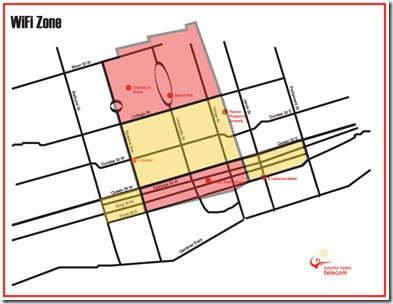
The Canadian Radio-television Telecommunications Commission is investigating Canadian ISP practices all week in a series of public hearings.
All week long, the Canadian Radio-television Telecommunications Commission (CRTC), Canada’s telecommunications regulator, is investigating Canadian ISPs who are throttling back speeds on certain Internet applications and engaging in “usage based pricing” of their wholesale accounts.
The hearings, which will run until Monday, will help the CRTC create regulations for how service providers manage their Internet traffic and address provider claims of network congestion.
A wide array of interests are represented at this week’s hearings (courtesy CBC):
1. ISPs that use internet traffic management for P2P file transfers
- Specifically: Bell Aliant, Cogeco, Rogers, Shaw, Barrett Xplor.
- What they are expected to say: Practices such as throttling are necessary to ensure fairness among internet users and prevent a few bandwidth hogs from slowing down the internet for everyone. Barrett Xplor use traffic management for satellite services, arguing that satellites are expensive and hard to upgrade.
2. ISPs that use other methods to deal with congestion
- Specifically: Telus, MTS Allstream, Primus, Quebecor on behalf of Videotron
- What they are expected to say: Methods such as usage-based pricing and network upgrades work well to deal with congestion, but each ISP should be allowed to make their own decisions regarding how they deal with congestion. Primus argues in its written submission that internet wholesalers such as Bell should not be allowed to impose their traffic management practices on the customers of other ISPs that buy wholesale network access from them.
3. Small ISPs, including those that may be throttled by their wholesalers
- Specifically: Coalition of Internet Service Providers Inc., Canadian Association of Internet Providers, Execulink, Cybersurf.
- What they are expected to say: Many of these companies buy internet access wholesale from companies such as Bell, create packages and resell it to their own retail customers. They argue that allowing wholesalers to apply traffic management to customers of other ISPs is anti-competitive.
4. The entertainment industry
- Specifically: Independent Film and Television Alliance, Canadian Film and Television Production Association, Alliance of Canadian Cinema, Television and Radio Artists.
- What they are expected to say: The internet is an important platform for distributing music, film and TV. ISPs should not act as gatekeepers for those.
5. Other businesses and organizations that rely on the internet to deliver services
- Specifically: Zip.ca, Jason Roks, Vaxination informatique, Norm Friesen, Canada research chair in e-learning practices at Thompson Rivers University, Open Internet Coalition
- What they are expected to say: Traffic management practices that discriminate against certain types of data could reduce investment in broadband networks and consumer choice, inhibit innovation and freedom of expression and be abused to engage in anti-competitive practices.
6. Consumer and public interest advocacy groups
- Specifically: Public Interest Advocacy Centre, Union des consommateurs, National Union of Public and General Employees, Canadian Internet Policy and Public Interest Clinic on behalf of Campaign for Democratic Media, Council of Canadians with Disabilities and ARCH Disability Law Centre
- What they are expected to say: Their position is similar to that of businesses and organizations that rely on the internet, but they are also concerned that technologies such as deep packet inspection could invade consumers’ privacy.
Several interest groups are willing to advocate for certain bandwidth management techniques over others, much to the consternation of some consumers following the hearings. Jacob Glick, Canada policy counsel for Google, for example, told CRTC commissioners he supported usage based pricing if it meant throttled broadband would end. In his written and spoken comments before the CRTC, he indicated that throttled broadband was the worst choice for ISPs:
They have the potential to hurt innovation and other techniques are preferable, including:
- Boosting network capacity.
- Using different pricing models.
- Using techniques that target the amount of bandwidth use rather than the type of application using the bandwidth; for example, slowing a user’s connection after reaching a certain limit.
Glick argued that such techniques helped Comcast reduce network congestion after it was ordered by regulators to stop throttling its customers. Comcast has a 250GB monthly consumption allowance.
John Lawford, counsel for the Public Interest Advocacy Centre, which claims to represent three Canadian consumers groups, also advocated usage based pricing telling the Commission it was an acceptable alternative to dealing with network congestion issues.
But Timothy Denton, national commissioner for the CRTC, inquired about whether usage based pricing would inhibit the development of innovative, but bandwidth intensive, services like online video. Marvin Ammori, general counsel for Free Press argued that it very well could. Ammori pointed out there are anti-competitive issues to consider because many online innovations, particularly video, may compete with Internet providers’ own services.
Canadian consumers following the hearings on several technology websites were hostile to both usage based pricing and Net Neutrality violations.
John from St. Catherines wrote Stop the Cap!:
“I don’t know who these groups claim to represent but they sure as hell don’t represent me or any of the other consumers I know. It sounds like some of these so-called pro-consumer groups are being funded by commercial services that will be harmed more by bandwidth throttles than with these overcharging scams. Rogers does it all – they throttle, they cap, they charge penalties, and they raised their prices anyway! Glick is part of Google which has their own agenda which isn’t consumers, and Lawford is full of crap. He and his friends are like the passengers on the Titanic clawing their way to the front of the ship as it goes down. He’s not smart enough to realize all he’s accomplishing is going down with the ship a few minutes after the rest of us. He’s still going to drown, along with all of the consumers these people claim to represent.”
Canada’s largest online movie rental firm was particularly concerned about usage pricing models.

Rob Hall, Chairman of Zip.ca, Canada's leading online movie rental firm, told the Commission his business could go down if providers continue throttling traffic and limiting usage.
Rob Hall, chairman of Zip.ca and CEO of its parent company told the Commission its plans to provide direct delivery of movies and other programming directly to consumers online, without waiting for a DVD to arrive in the mail, could be jeopardized by speed throttles and usage limits. Hall said that cable and telephone video providers get to deliver their own programming to viewers over the same wires as their Internet service, but without any limitations. Hall said that represents evidence that providers are giving priority to their own network traffic over others.
“The same rules must apply to both,” Hall said.
Hall was also concerned about ISPs spying on customers and potentially taking advantage of the data they collect:
- Some ISPs are throttling peer-to-peer file transfers using programs such as BitTorrent, which “might be an ideal platform” to deliver Zip.ca’s movies, as it uses the network efficiently.
- Deep packet inspection, a technique used for traffic control, will be abused to access marketing information about users that his company has collected.
- If rules change suddenly, and there is no way to resolve the problem quickly, his company could be put out of business.
Independent ISPs are also concerned about the implications of throttled service. They purchase Internet access from large providers like Bell (Canada) and then resell that connectivity to their customers. Recently, Bell started imposing usage based billing on their wholesale accounts and throttled their speeds, forcing providers to raise prices and limit access.
The proposition, according to several providers, is that they are supposed to compete with Bell and large cable operators with a service that is identical or worse than what those providers offer, with the same limitations on usage and service, at a price that reduces or eliminates potential savings and benefits for their customers. They believe many providers will be driven out of business because of the anti-competitive marketplace.
Many appearing at the hearing were skeptical about the effectiveness of bandwidth throttling, particularly of peer to peer applications. Many such networks are rapidly moving to hiding traffic to avoid the network throttle. Jean François Mezei, who runs the consulting company Vaxination Informatique, told the Commission that those heavy users of such applications will switch to a less efficient protocol to hide their traffic, which would only increase congestion further.
Toronto-based technology consultant Jason Roks said the real problem is false advertising by providers who are overselling their networks to subscribers. Roks said advertised speeds in provider promotions rarely meet expectations, companies do not disclose the actual speeds of throttled services, and consumers are not given access to that information. Roks told the Commission bandwidth providers are using throttles and other control measures to avoid investing in expanding their networks.
“If they can’t afford to upgrade their networks to support that many customers at advertised speeds, they should let customers go,” he argued.
More reactions from Canadian consumers below the fold.
… Continue Reading


 Subscribe
Subscribe






